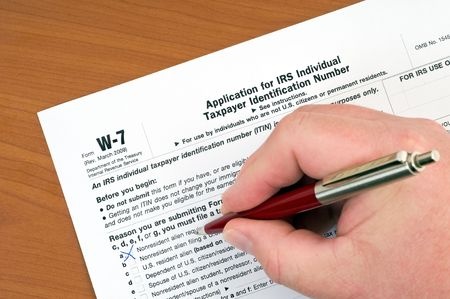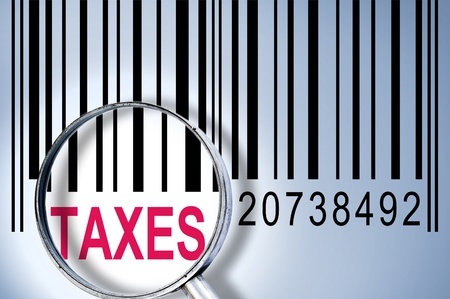Three things to know about updates to the EIN application form
In an effort to improve security and transparency around the Employer Identification Number (EIN) application process, the Internal Revenue Service has published updated instructions to Form SS-4, Application for Employer Identification Numbers.
An EIN is an identification number assigned to sole proprietors, corporations, partnerships, estates, trusts, employee retirement plans and other entities. It is the equivalent to a Canadian Business number and all businesses operating in the U.S. must have an EIN in order to file tax returns or entity classification elections with the IRS. In some cases, it is also required to open a U.S. bank account.
If you are a Canadian doing business in the U.S., there are three key takeaways from these updates:
1) Requirement for an SSN or ITIN. EFFECTIVE MAY 13, 2019, taxpayers cannot apply for an EIN unless the responsible party named on the application has either a social security number (SSN) or Individual Taxpayer Identification Number (ITIN). While it is not expressly described in the new instructions to the application, it is understood that an EIN can be assigned to an international applicant (i.e. an entity that has no legal residence, principal office, or agency in the United States or a U.S. possession) if an SSN, ITIN, or EIN for the responsible party is not available. In this case, the applicant can enter “foreign domicile” on line 7b of Form SS-4.
2) Change to the definition of “responsible party”. As of December 2017, the IRS requires that an EIN applicant’s “responsible party” must be an individual who owns or controls the entity or exercises ultimate effective control over the applicant. The responsible party can be a U.S. or non-U.S. person, but it can no longer be an entity. (Government entities and military are exempt.)
3) Elimination of the “check-the-box” exception. The “check-the-box” exception no longer applies. Prior to this change, a SSN or ITIN was not required to apply for an EIN if the reason for obtaining an EIN was to file IRS Form 8832, Entity Classification Election (i.e. a “check-the-box” election to change the entity’s classification for federal tax purposes). In the most recent version of the application, the IRS has eliminated this exception.
The check-the-box election as a planning tool
The “check-the-box” election has been a popular post-mortem planning tool used by Canadians to avoid the U.S. estate tax on U.S. situs assets held by a non-U.S. taxpayer at death. A Canadian partnership is initially created to own the U.S. situs assets and, following the death of the non-U.S. taxpayer, a check-the-box election is made to treat the Canadian partnership as a corporation for U.S. tax purposes. A non-U.S. decedent who, at death, holds shares of a foreign corporation (which serves as a “blocker”) that owns U.S. situs assets is not subject to the U.S. estate tax. The “check-the-box” election can be effective up to 75 days prior to the date the election is filed, which effectively permits the ownership by the non-U.S. decedent of the “foreign corporation” to occur prior to the date of death.
The U.S. estate tax is assessed at up to 40% of the fair market value (and not the gain) of the U.S. situs assets, however, the lifetime estate tax exclusions that are permitted under the Canada-U.S. Treaty may provide relief from the U.S. estate tax. Because the lifetime estate tax exclusions have doubled for 2018 through 2025 under the Trump Administration’s new tax Act, this planning tool may prove to be less effective until the end of 2025.
Advance Planning is Highly Recommended
Limited Liability Companies (“LLC”) that are wholly-owned by non-US persons must now comply with the reporting requirements of Form 5472, Information returns of a 25% Foreign-Owned U.S. Corporation or a Foreign Corporation Engaged in a U.S. Trade or Business. The Form must be attached to a proforma U.S. tax return (i.e. Form 1120, U.S. Corporation Income Tax Return) and is due by the 15th day of the fourth month following the end of the foreign owner’s tax year or calendar year. For a calendar year foreign owner, the tax return is due April 15.
Because the ITIN application process is quite onerous and may take months to complete, advance planning is critical to ensure that elections are made in a timely manner and the U.S. filing requirements are met by the due date.
There is no change to the application process for tax professionals who act as a designated third-party in completing the process for an entity.





